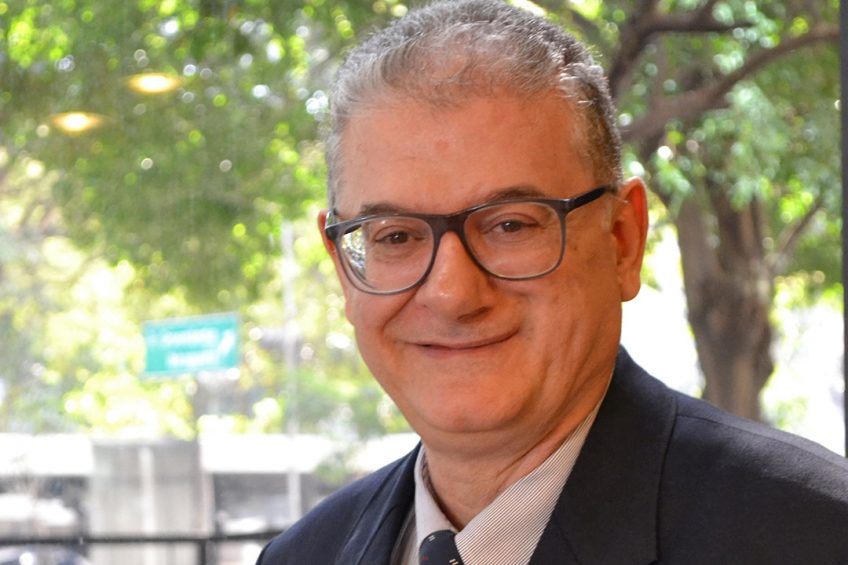Aviagen LATAM: Seize opportunities and overcome challenges

With new grandparent stock farms and a hatchery in Brazil, along with the recent purchase of a controlling ownership of distributors in Peru and Colombia, Aviagen is expanding. “Aviagen has always had a strategic vision for expansion in Latin America, believing the region will continue to increase its chicken production to meet consumption and export needs,” says Aviagen’s Latin American president Ivan Pupo Lauandos.
Just before the end of 2019 Ivan Lauandos, president of Aviagen Latin America, reflects on an interesting year for his company. In the midst of turbulent market conditions, both positive and negative, Aviagen was able to sign new agreements and build farms and hatcheries to improve their market access and get closer to their customers. Opportunities are there to be be seized and challenges to be overcome.
ProfileIvan Pupo Lauandos has held the position of president of the Latin American business Aviagen since 2013. He started with the company in 1997 as the managing director of Agroceres Ross, the former joint venture between Aviagen and Agroceres. With Aviagen’s acquisition of the assets of Agroceres Ross, Ivan became general director from 2007. |
How does Aviagen see the current market situation and what opportunities are there for growth now that Brazil’s export markets have opened again?
“There is a huge animal protein deficit in China caused by the African Swine Fever (ASF). Brazil has the know-how and infrastructure in place to help them minimise this deficit by quickly meeting their demand for poultry, pork and beef. The Brazilian industry is also active in other export markets, such as Europe and other parts of the world, where they need a safe, secure and reliable supply of high-quality poultry breeding stock.”
Is there still the competitive edge that Brazilian producers had before? And how does Aviagen’s genetics and expertise contribute to this?
“Brazil is truly competitive because the country meets all the conditions necessary to be a major player globally in animal protein production: a plentiful labour supply, production expertise, a strong domestic market, enough land area for grain production, strong knowledge and expertise; everything is there. Brazil also has very good biosecurity, weather conditions and water availability which are key factors to the success of the industry. Aviagen makes a major contribution to the competitiveness of the Brazilian poultry industry by breeding birds that are specifically adapted to Brazilian conditions and meeting growers’ needs.”
We want to continue to grow our business, be closer to our customers and develop the right poultry for the right segments.”
How do you see Brazil’s role in feeding the growing world population?
“Brazil is increasingly involved in the production of animal proteins and other agricultural products, such as grain and fruit. Brazil is also developing technologies tailored to the local conditions and has a key role to play in feeding the world population today. An important role that will grow in the near future, that’s for sure.”
What can Aviagen’s genetic progress contribute to that under Latam conditions?
“The genetic gains of Aviagen broiler breeders in Latin America have and will continue to make a major contribution to the Latin American poultry industry by providing birds with the profile needed by the different market segments. These birds have a healthy growth rate and are highly efficient in converting feed into live body weight. The meat yield has also improved year on year and all of these benefits have worked to bring down production costs dramatically. We’re also producing more and more birds with very strong adaptability to different environments and excellent robustness – another major benefit for our growers.”
How does Aviagen’s recent GPS expansion in Santa Catarina and Parana fit into that?
“Aviagen recently invested to expand production in the South of Brazil (Parana and Santa Catarina) because the southern region represents about 55% of the poultrymeat consumption. So the idea is to be closer to our customers, improve quality standards and reduce transportation distances. We have new GPS farms in Caçador and Capinzal, Santa Catarina state, and a hatchery in Carambei, Parana state, which are adding about 5 million parent stock to our current production capacity.”
Can you give some insight into the domestic market? Is there room for added value meat products or is it more of a standard meat market?
“As I mentioned, the Brazilian chicken market is very competitive. There are several segments such as whole bird, cut-up sections, as well as added-value poultrymeat. The added-value segment represents about 10% of total production. Currently, there is also a niche market for slow-growing birds. In general, the main segments in Brazil are cut-up birds and whole birds.”
A key role in feeding the world population, today and tomorrow”
What are Aviagen’s main goals in Brazil and LATAM?
“Aviagen’s main goals in Brazil and Latin America are very clear: we want to continue to grow our business, be closer to our customers and develop the right poultry for the right segments. Adding new hubs within Latin America was a great decision. We now have production systems in Brazil, Colombia and Peru, and are developing a new production facility in Argentina. We want to supply high quality birds that fulfil the needs of every market segment in Latin America and be the preferred supplier of breeding stock all over the continent.”
What do you see as the main challenges on the road to the future?
“There has been some instability in some countries (such as Ecuador, Chile and Bolivia, recently) while economic growth has not been strong enough. Among the main challenges for the Latin American region is that the economy of all the countries needs to grow faster – the perfect scenario would be for the growing population to increase its per capita consumption of all animal proteins.”

The who’s who in the poultry industry talk to Poultry World …click here for more interviews













